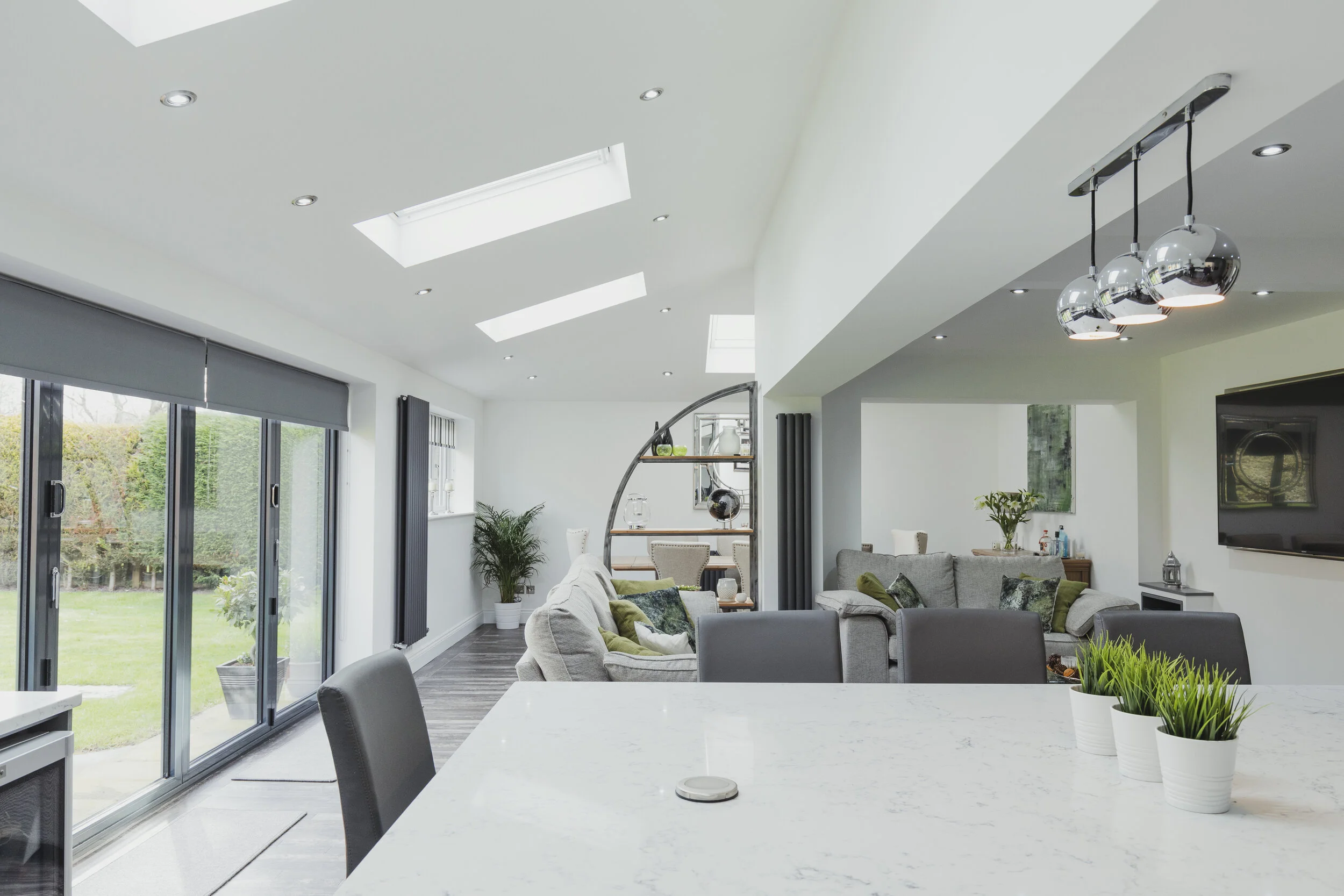Does your project require planning permission?
So you have decided on a house extension to your property, great idea, but does it need permission from your local planning authority (LPA)?
Planning permission is required in many circumstances to ensure that an extension or alteration to a property is lawful. It’s the part of the extension journey that many homeowners find confusing and mired in complexity!
How long does it take?
The planning process can take quite a long period of time. After the design phase, it usually takes your LPA around 2 weeks to validate a planning application and then can take up to 8 weeks to receive a decision notice.
During this time the planners will notify and consult your immediate neighbours and it is highly likely they will personally carry out a site visit. This visit allows the relevant planning officer to assess first-hand for themselves the impact of your proposal on the street scene and adjoining owners. Once the 8 weeks period has run, your scheme will either be granted (sometimes subject to certain conditions) or refused.
Does every extension need planning permission?
The good news is no! Your local planning authority (LPA), a department of your local council, is responsible for deciding whether a proposed development should be allowed to go ahead. Most new buildings, major alterations to existing buildings and significant changes to the use of a building or piece of land will of course need planning permission.
However, certain minor building works, known as “permitted development”, don't need planning permission. This is because the effect of such developments on neighbours or the surrounding environment is likely to be small.
For example, under current permitted development rights a homeowner can extend to the rear of a semi-detached or terraced property by up to 3m single storey without permission. This can extend up to 6m subject to Neighbour Consultation. Likewise, on a detached property the permitted development rights extend from 4m to 8m in line with the criteria mentioned above. Of course there are certain caveats to this rule that the proposal has to fit to benefit from permitted development rights. For example, the property cannot be listed or in a designated area (Area of Outstanding Natural Beauty or a Conservation Area).
Although your scheme may fit under current permitted development, it is always best-practice to apply for a lawful development certificate from your local authority. This is a prudent measure as it gives the homeowner written proof from the local planning department that states that the works carried out are indeed legal. This paperwork will be very useful to your solicitor/surveyor if and when you come to sell the property at a later stage. The lawful development certificate application process generally takes the same length of time as full planning permission.
Common sense would tell you to only start building prior to getting your decision if you’re absolutely certain your proposal is lawful.
What if my permission is refused?
If your planning permission is refused by your local authority, but you feel the decision is wrong, you can take the matter further by appealing to the Planning Inspectorate. There is no cost associated with this appeal and the forms can be easily managed and submitted online. Any appeal must be submitted within 6 months of the original refusal notice date.
An independent planning inspector, not associated to your LPA, will then be appointed to assess the case within the framework of the current versions of the local and national development plans. They will also likely visit site to assist with making their final decision.
Unfortunately, due to the sheer level of appeals, the Planning Inspectorate get rather busy and a final decision can take many weeks, if not months, to receive.
If the Planning Inspectorate agree with your LPA’s original decision there are further appeal routes that a homeowner can follow for set reasons. It is worth talking to a planning or legal consultant if you get to that stage.
Also don’t forget a neighbour or other significant party can appeal your granted permission in the same way.
Further Information
For further helpful information on planning or permitted development rights, visit the interactive house on the Planning Portal website:
https://interactive.planningportal.co.uk
Need someone to do it for you?
There are many design and planning consultants available that will be able to take your project from design, through planning, with relative ease. Clearly getting a professional company on-board that specialise in solely in this area can only increase the chances of a positive outcome, but of course this extra assistance does come at an additional cost.
The team here at Extension Pro specialise in all aspects of the domestic home extension, loft conversion and renovation sectors. Our specialist, completely in-house team of architectural designers, surveyors, consultants and structural engineers can make a complex process very straightforward; what’s more our build team can construct the build on site for you. One company, one point of contact and one easy experience!

